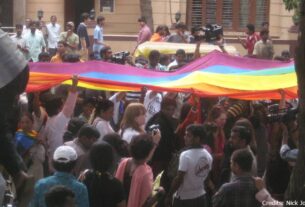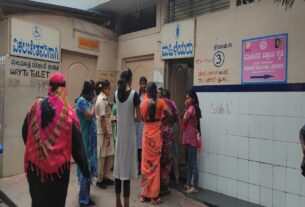Conviction rate under the SC/ST (Prevention of Atrocities) Act decreased to 2.7 percent and getting justice remains a draconian task for the community, say lawyers.
The average number of crimes against Scheduled Castes/ Scheduled Tribes (SC/ST) in 2023 increased in Bengaluru and Karnataka according to data provided by the Bengaluru City Police, and Karnataka State Police.
Till September, 209 cases were registered, whereas 252 cases were registered in 2022, under crimes against STs and STs. Rape and molestation cases show a steep rise, with 16 rape cases registered in 2023 till September, from 10 cases registered in the entire year of 2022. In 2023 molestation cases increased from 12 to 14 in Bengaluru.
According to the monthly crime review of Karnataka State Police, 1491 cases were reported under crimes against SCs/STs in 2022, whereas 1377 cases are booked in 2023 till August, withan increase of 38.5 percent in the average number of cases booked.
Lokesh, a member of Dalita Shoshita Rakshana Vedike, Karnataka, said that atrocities against the Dalit community happen every day, and the people in the community are being looked down upon everywhere. “People will say ‘they are not intelligent, they are not intellectual…,’ where as there is absolutely no scientific evidence or data to prove it. Every human being is equal. Anyone can become anything, and anyone can reach anywhere, irrespective of their caste or class” he said.
Pritam Kumar Ghosh, assistant professor at School of Law in RV University pointed out the lack of awareness. “Crimes against backward classes are increasing as they are still considered to be the marginalized minorities and there is a lack of awareness about the SC/ST Prevention of Atrocities Act and its punishments” he said.
According to the SC/ST prevention of atrocities Act, trial should be completed within a period of two months from the date of filing of the charge sheet.
However, Narasimhappa T V, a lawyer said that it doesn’t happen in most of the cases. He gave the example of a case in 2021 where it took a year and a half for the completion of trial, after the charge sheet was filed. It had to do with a relationship between two people from different castes. The girl killed herself after the boy refused to marry her, the lawyer said, but a suicide case was registered.
In another incident, a grama sahayaka in Tumkur died and the case was closed in 2022 in the special court. The grama sahayaka’s daughter, who has taken the case to the High Court said that the only reason she lost the earlier case was their caste. She said, “My father was killed in 2020. I’m just a village girl who doesn’t have any kind of power or external influence. The upper caste people have political influence enough financial support, and higher officials back them. We are not able to move forward in our life.”
Lokesh said that the police must take initiative, and file FIRs. “Mainly, Dalit people are not aware about filing cases. The police talk in an authoritative language, which controls the Dalits,” he said.
Narasimhappa said that the SC/ST community face problems while filing cases, as they think that they don’t know how to talk to the police. “The police often deny the complaint,” he said.
However, Deputy Commissioner of Police (DCP) connected the increase in crime to increased awareness. “Awareness has increased now. Earlier, middlemen used to meddle with the issues. At times, even police used to solve the issues without filing the FIR. They used to try and settle the issues right in the police station. Now, we have zero tolerance for not registering FIR,” said R. Srinivas Gowda, DCP of Crime, Bengaluru City Police.
DCP said that when cases like rape or murder happen against the SC/ST community, the SC/ST Act automatically kicks in. “Sometimes people misuse the law. The person who commits crime wouldn’t be aware of the caste of the person. But the case will be booked under SC ST (Prevention of atrocities) Act,” said Gowda.
Prof. Ghosh suggested implementation of training programmes for people, including those belonging to the reserved categories, at both government and private levels to create greater awareness about the SC/ST Atrocities Act.
Lokesh agreed that some people might be misusing the Act, but he said that it happens with all the other Acts, “Most of the people are using the Act properly. They are trying to deactivate the Act because a few percentage is misusing. The Act should be properly implemented,” he said.
He also pointed out casteism and illiteracy as the reason behind the discrimination and crimes. “The situation is improving. But it will take time,” he added.




